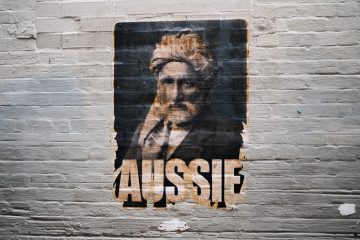Why I stopped working as a doctor
Why I stopped working as a doctor – By Dr Tomasz Forfa
It really kicked in while I was working on the cancer ward.
There wasn’t any one moment, patient or conversation that made me want to get out.
It was more of a slowly building sensation telling me that I needed to do more.
My job as a doctor on the cancer ward involved being part of the team caring for the patients with cancer who were having radiation therapy. I would only see them when they were admitted to hospital. The vast majority of Radiation therapy patients, however, are never admitted to hospital. They’re treated as outpatients. They come into a clinic, receive their treatment over a few hours and then go home. When something goes wrong, such as, when there are side effects severe enough that they can’t be treated at home, or the patient is towards the end of their life, then they are admitted to hospital and I looked after them.
It was a team effort with other doctors, nurses, social workers, physios and the palliative care team, but I was the first stop. I was the one on the floor everyday who knew everything about what was happening to the patient. If you had a question, concern or suggestion, I was the first doctor you turned to. I only ever had a handful of patients at a time, but when I had them, they were really sick. That hand full of sick patients was enough to keep me very busy.
As is the case with cancer, many of my patients passed away. Apart from ‘killing’ cancer, Radiation therapy sometimes aims to just reduce the cancer’s severity or its impact on the patient quality of life. For some patients, there comes a point when the cancer gets so bad that the patient comes to the end of their lives. Like I said, those were my patients. The ones who were suffering. I saw many of them pass away. I signed the death certificates, sat in on the family meeting to discuss if we should keep treating mum or let her go in peace, I wrote the instructions to stop the life preserving treatments when they were futile, and I was the first on the scene when a recovering patient suddenly turned for the worst and they had to be revived.
Many of the doctors I worked with were inspired by this. They were inspired to help, to provide support, to guide someone through this difficult time to a recovery. I still admire those doctors.
For me, it made me value life. It made me value every day.
It made me unafraid to die but afraid to not live.
It made me afraid of not living up to my full potential and the fullest life I could. The slowly building realisation that daunted on me, and the one which was solidified in those months on the cancer ward, was that being in a hospital or clinic as a doctor was not living my life to the full. It was no longer my happy place, and it would never be.
Once I finished my internship, I started working part time. The hospital reluctantly allowed me to take a few months off. So I proposed to my girlfriend, Mare (another thing I decided to do during my term in radiation Oncology), we packed up our apartment and went traveling through Europe for 5 months. I had been running an internet based education company since starting medical school. So Mare and I worked on that while we travelled. We had just signed up with a new Mentor and were implementing their lessons while we travelled. As a result, our business took off in that time.
We were travelling the world, running a business that changed people’s lives, making a good income and had all this freedom to live our lives (although we were working most days). So I thought to myself, “why go back to the hospital?”
After a lot of soul searching and some deep discussion with Mare, I sent in my resignation with her support and encouragement.
There were countless other doctors, especially those in the medical student Tsunami that was moving in on my heels, fighting for positions on training programs and competing for limited jobs.
Medicine really is a lifestyle. It’s an incredible lifestyle where you save lives, you get to see a side of life which no one else experiences, you help people when they need it most, you have skills that change lives, and I am happy and grateful that I did it. The lessons, the mind opening and boggling experiences, seeing a side of human nature and the body that no one outside of a hospital will ever experience, it’s something that will be with me and guiding me my whole life.
Now I spend my days the way that I want to, still changing lives with our work (just not in the clinical practice of medicine), looking for new ways to have a positive impact on the world and living life to the full. It’s not without its challenges. It’s all on us now – no employer or boss to turn to or blame. But it’s hard to complain when you’re writing this from New Orleans and recently clothed 500 Balinese school kids…






